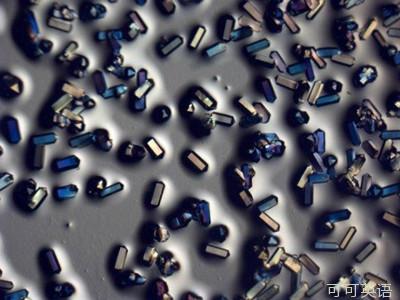(单词翻译:单击)
Using fire to boil water has long been the preferred method for making steam. But now, thanks to specially coated nanoparticles of sand, we can use sunlight.
用火烧开水是生产蒸汽的首选方式。然而如今我们能利用光能生产蒸汽,这得多亏有特殊纳米分子涂层的沙粒。
Researchers at Rice University in Texas made fine grains of sand, much smaller than the width of a human hair, and coated them in gold or carbon. They sprinkled these nanoparticles into water, and then focused sunlight on them. Each particle acted as a nano-sized boiler, absorbing the heat from the sunlight and turning surrounding water molecules from liquid to vapor. This solar steam was produced without having to boil the whole pot, in as quickly as five seconds.

德克萨斯州莱斯大学的研究人员生产了一种比头发丝还精细的沙粒,把它们涂在金子或者碳上。然后把这些纳米颗粒洒在水里,再将阳光集中在这些颗粒上。每个分子扮演着纳米级锅炉的角色——吸收太阳的热量,加热周围的水分子直至蒸发成水蒸气。生产这种太阳能水蒸气只需五秒钟,而且不需要煮沸整壶水。
The research was published in the American Chemical Society's journal ACS Nano.
这项研究发表在美国化学学会的杂志《ACS纳米》上。
The nano-sized boilers turn sunlight into steam with 80 percent efficiency and could prove a boon in places that lack fossil fuels or electricity. The nanoparticles are easy to make, relatively cheap and can be used over and over again.
这种纳米级锅炉将太阳光转换成蒸汽的热效率为80%,给那些缺乏化石燃料和电力的地方带来了福音。这种纳米分子制作方便,成本相对便宜,并能反复利用。
The technology could enable folks in resource poor areas to do everything from purifying water to sterilizing surgical equipment. And that might be enough to start a new, if smaller, Steam Age.
这项技术能让资源贫乏地区的人们做任何事情——从净化水源到外科手术器械的消毒。那将足以开启一个(假设是相对较小的)新蒸汽时代。
原文译文属可可原创,未经允许请勿转载!


